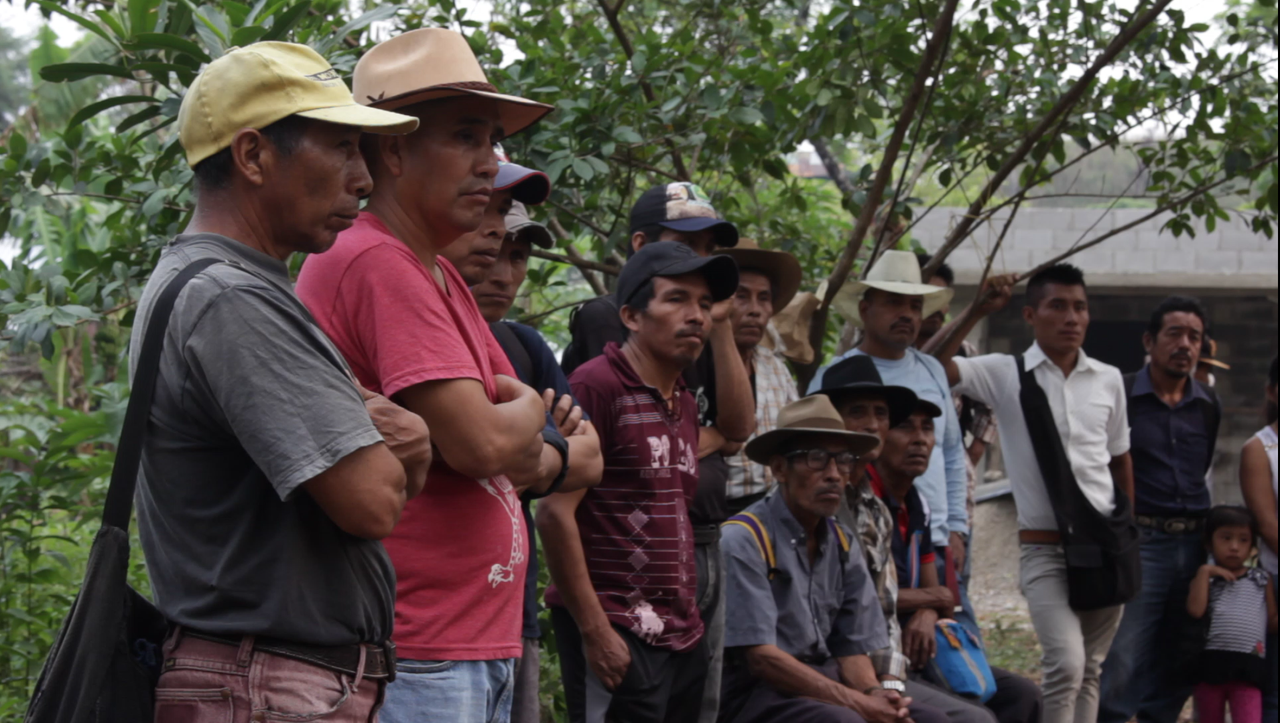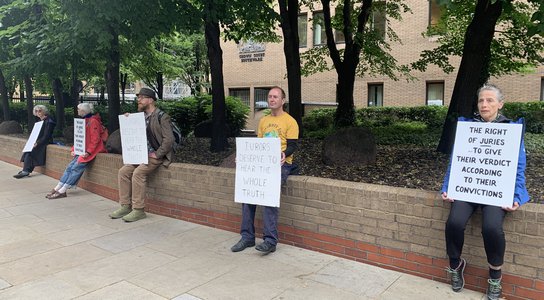
The reduction of civic space is just one of the difficulties faced by human rights defenders in Guatemala.
In November, the Unit for the Protection of Human Rights Defenders of Guatemala (UDEFEGUA), a local non-profit organisation, reported that 844 attacks occurred between January and September 2020 against human rights defenders in the country. Those figures demonstrate a historic rise in alleged abuse. The number of attacks in 2020 now outstrips those recorded in the previous year by 350 and even outnumbers those documented in 2014, the previous year with the highest number of reported violent incidents.
“Amidst the pandemic context, where most people were locked down in their homes during long periods, defenders continued to be attacked, and even murdered. It shows a worrisome pattern of behaviour that we, at UDEFEGUA, are seeking to understand. We need urgent measures from the State to protect our own citizens”, explained Jorge Santos, General Coordinator of UDEFEGUA, at a press briefing to release their new report.
On November 21, thousands of protesters exercised their rights by joining a massive peaceful protest in Guatemala City’s central square. However, more than forty participants were arrested and were only released two days later without charge, seen by protestors and human rights organisations as an attempt to criminalize protestors. The Inter-American Commission on Human Rights recommended investigating the excessive use of police force in the detention and intimidation of demonstrators.
In this context, the “More Visible, More Secure” campaign recently launched by UDEFEGUA is needed more than ever. The initiative prompts an urgent call not only to protect defenders but also to make their role and importance in our society more visible. The role of those on the front line is crucial if we want to build a “new normal” and to prevent further deterioration of Guatemala’s weakened democracy.
Many forms of agression
The reduction of civic space is just one of the difficulties faced by human rights defenders in the country. According to UDEFEGUA, 37% of attacks are against women defenders; 13% against organizations, communities and defence institutions, and 50% against human rights defenders.
Further, UDEFEGUA registered 14 killings, 4 of these were female defenders, and 10 were male. There were also 22 assassination attempts it reported.
According to UDEFEGUA, 34% of all attacks are instances of criminalisation that occurred in the first nine months of 2020, with 287 incidents in which criminal law has been used against defenders.
“Criminalization is a phenomenon that worries us since it implies that the State is imposing a repressive logic and selective use of its criminal system rather than guaranteeing the defence of human rights, and keeping land and environment free from violence. In Guatemala, impunity is common, but the criminal justice system as a whole seems to become much more efficient when it is looking to prosecute, judge and sanction defenders”, declared Santos.

The campaign "more visible, more secure" prompts an urgent call not only to protect human rights defenders in Guatemala but also to recognise their role and importance in our society.
More visible, more secure
UDEFEGUA received information on 134 attacks against defenders, organizations and/or communities, in the regions of Alta and Baja Verapaz, Izabal and Petén, outside the metropolitan area. There are a higher number of attacks in areas where the presence of extractive business is more intensive.
According to the Global Witness report “Defending Tomorrow”, 212 people worldwide were killed protecting their homes, forests and rivers. 2019 recorded the highest number of murders against those who resist the so-called “development model” since figures began to be collected almost a decade ago.
Guatemala ranks sixth in the list of the most dangerous countries for land and environmental defence, with 12 murders recorded in 2019. In the last two years, there were 28 murders linked to land and environment defence. In 2018, murders increased five times from the previous year, with 16 deaths.
In the face of an evident and imminent climate crisis, it is essential to stop the attacks against those on the front line, resisting against environmental deterioration, deforestation, and the use of ancestral territories as merchandise.
We are at a crossroads for humanity. If we want to generate a structural and lasting change to protect our planet, now is the time. As the world seeks to recover from the global pandemic, the question of how we will rebuild our world to be greener, more humane and more resilient has come to the fore. Undoubtedly, people who defend the earth and the environment play a vital role in developing our collective response to the looming crisis of climate breakdown.


